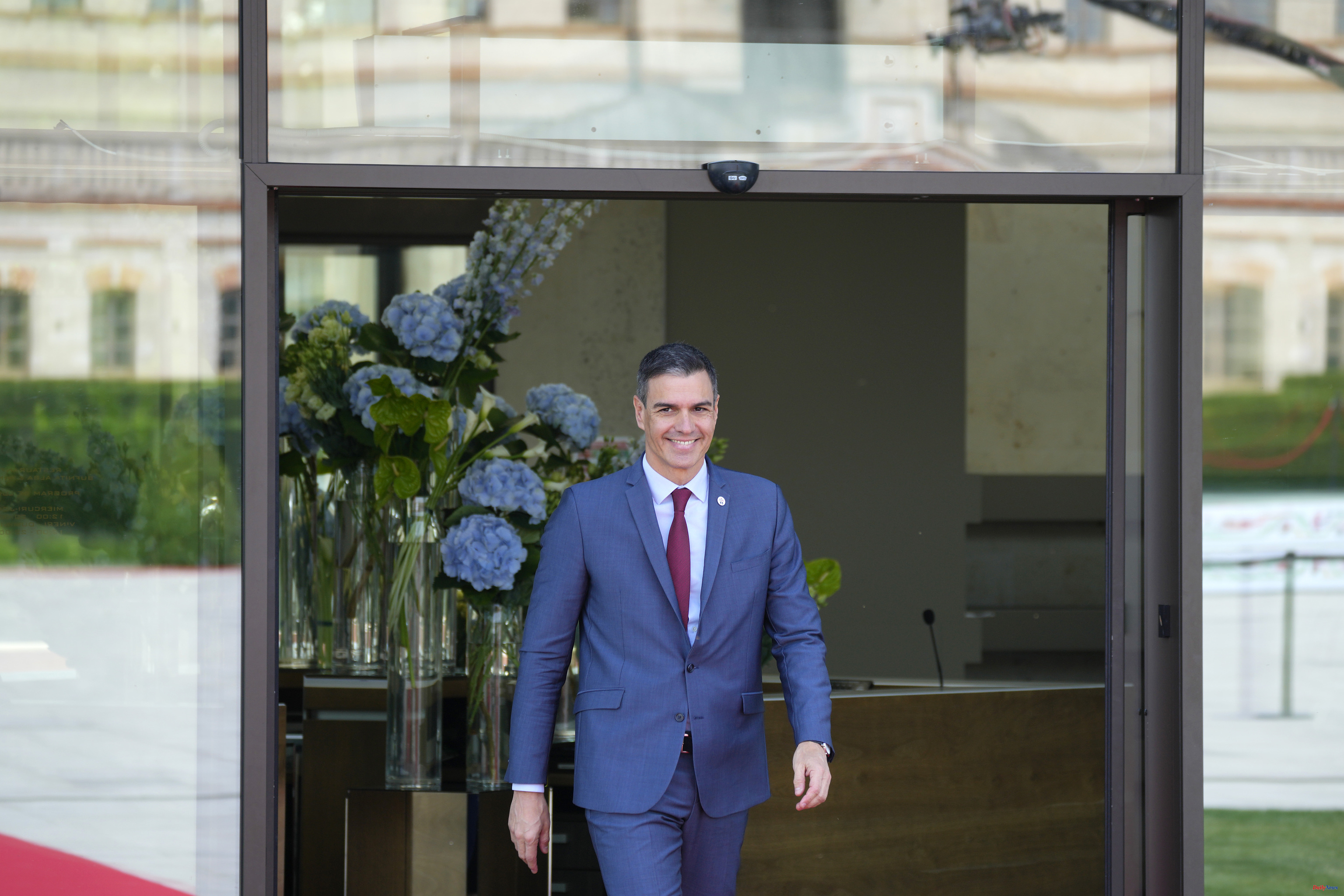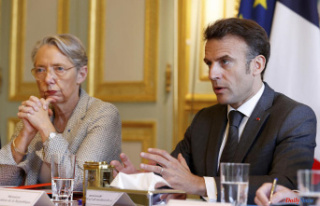Since he joined La Moncloa, Pedro Sánchez has cultivated an intense international agenda. The president has shown that he feels more comfortable among foreign leaders than among the troubles of national politics. The image together with Joe Biden on May 12 at the White House, just as the electoral campaign for the 28-M elections began, confirmed that good global presence that, however, does not seem to result in more votes for his party .
After the debacle and the call for early elections, one of the fronts that has been opened, recovering rumors, jokes and aspirations in equal parts, is that of a possible professional future far from our country. There are several possibilities, but the calendar makes most of them, at least the most interesting ones, complicated, if not impossible. The sources consulted do not hide that the President of the Government has worked and cultivated his contacts and they do not rule out an exit outside our borders in the event that his future no longer passes through La Moncloa.
From their environment they believe that now Spain "is on the international agenda due to the assessment that our country is made from other forums, be they economic or from the European Commission" and that it did not occupy that rank before. In the presidential complex, they do not hesitate to talk about the "undoubted weight" of the Spanish president "in the world", and they give as an example, in addition to the trip to Washington, his meetings with Zelenski or the president of China, Xi Jinping. "Spain is very well positioned, we have earned absolute respect by looking for solutions," say socialist sources. In this framework, his work would also be installed to become president of the Socialist International, a position to which he agreed in November 2022.
However, the deadlines for good charges are very complicated. At the beginning of June 2024 the European elections will be held, and shortly after the leaders of the 27 will meet in Brussels to elect the next presidents of the Commission, the European Council and the European Parliament. That is too late for any aspirations for Sánchez. If his party won the elections and could continue in power, it does not seem likely that he would want to leave it to, for example, become head of the European Council, as the current occupant, Charles Michel, did. The Belgian was acting prime minister of the country, but he did opt for the community career, leaving a colleague in the ranks at the head of the interim government.
Sánchez could only aspire to the presidency of the European Parliament as a member of the European Parliament, for which reason he is ruled out. Obviously he would not go on those lists while in Moncloa and it is impossible for him to reach the position if by then there is already a popular Executive. The Commission's option, hampered in itself because everything points to a second term for Ursula Von der Leyen, could only go ahead if he remained in power and defended his own candidacy, and required very clear socialist results across the continent . But unlike in 2019, he is no longer the main Social Democratic leader and his unofficial negotiator, since Olaf Scholz is now in Germany. And in his European family it still stings his way of fighting last time, which failed to get candidate Frans Timmermans to the top.
In the EU there are few other options, at least at the highest level. They are studying who will preside over the European Investment Bank from January, but it is something too small and the one who sounded in the corridors of the Grand Duchy is its vice president Calviño, who has already opted for the World Bank or the IMF.
So the option that remains is the NATO general secretariat, for which the deadlines are also very complicated, but with a very implausible carambola perhaps it could fit, but with the implicit or explicit consent of the Popular Party. The Alliance's general secretary, Jens Stoltenberg, leaves his post in September. He should have done it already, a long time ago, but knowing how to take Donald Trump first and the war in Ukraine later forced the allies to extend his mandate several times and there are even those who want it to continue until 2024, when the 75th will be held in Washington. anniversary.
Their term expired in September of last year, but in March, days after the start of the Russian invasion, they decided to extend it until September 30, 2023. So the normal thing is that after the summer the baton passes, and that the leaders of the 31 members choose their successor at the summit to be held in Vilnius (Lithuania) on July 11 and 12, less than two weeks before the Spanish elections.
If Sánchez is the socialist candidate in the elections, as everyone expects, he could not be elected at that summit. But if he wasn't, or NATO couldn't agree on a replacement for Stoltenberg in Lithuania, and had to put it off for a bit, perhaps the many pieces could fall into place. There is no formal candidacy presented yet and diplomatic sources say that the process is not mature right now, there is no progress.
Sources of the Alliance assure that the profile of the Spaniard is "very appreciated and valued". Months ago he was openly in the internal pools, discreetly, but now there are more doubts. Veterans of the house say that nothing is impossible, that there are no rules and everything is in the will of the heads of Government and State. And if there are no better candidates, or that generate consensus, any caper is possible. No one, at least, dares to say that it cannot be or will not be outright.
The tradition is that the secretary general is a European and not an American, but the name of the Canadian vice president Chrystia Freeland sounds a lot. However, according to Atlantic sources, the preference is a former head of government. Only if there were no candidates or consensus would it go to the level of the ministers. There is also interest that she be preferably a woman, since none has held the position so far. And surely from the south, after the last ones have been a Dutchman, a Dane and a Norwegian. But none of that is mandatory.
They sound like the Estonian Kaja Kallas, but her recent re-election and that she is too hawkish in front of Russia worries some partners. Also running strongly is Danish Mette Frederiksen, who has just announced that her country will triple Defense spending by the end of the decade and that this month she will be received by Joe Biden at the White House. Other names that have circulated in the Belgian capital in recent months are those of the former British Prime Minister Theresa May or the current Defense Minister, Ben Wallace. That of the Dutchman Mark Rutte, who continues to lead the Dutch Executive and who does not seem very interested. Or the presidents of Romania, Slovakia and even Mario Draghi.
The play that could place Sánchez would require him to step back in Spain now and go all out in July. And if not, that there was no firm agreement in Vilna but that, in anticipation of his foreseeable defeat at the polls, it was then agreed to wait for the results before making a decision. And should everything fall into line, a further summit would be held, perhaps online, a few weeks later, in time for the next secretary-general to take office on October 1. Not legally impossible, but very rare. It would condition 31 leaders, starting with the US to be a second term at the most critical moment for the Alliance in a long time, to an uncertain electoral result. And it would require that there be no extension for the Norwegian. And it would also require the approval of the PP.
He is well-liked, respected much more outside than inside, speaks languages, has cultivated contacts, and has shown far more outward ambition than his more recent predecessors. He has allies and although his ambition is known in Spain, in Europe or America he is seen as someone who is much more in favor of consensus and who rarely blocks or hinders, even when he has pursued controversial objectives for the rest, such as energy reform.
Against the president, in addition to the times, is that Spain is the second country from the bottom in defense spending and far from the 2% commitments, despite the fact that we are very active in international missions, there is a presence of troops in all hot spots and there is a base in Rota. Not to mention the coalition with Podemos, which did everything possible to attack and discredit the alliance summit in Madrid last year.
In addition, it would be really delicate for an outgoing prime minister, after having already been defeated at the polls, to push his own campaign against the will of the incoming government, which is the one who will have a seat in the organization for the next few years. If this were to happen, it would be difficult for the PP to publicly position itself against the appointment of a Spaniard to such an important position, but with relations so deteriorated it is difficult to imagine any kind of enthusiastic support, regardless of whether he is a national.
According to the criteria of The Trust Project












